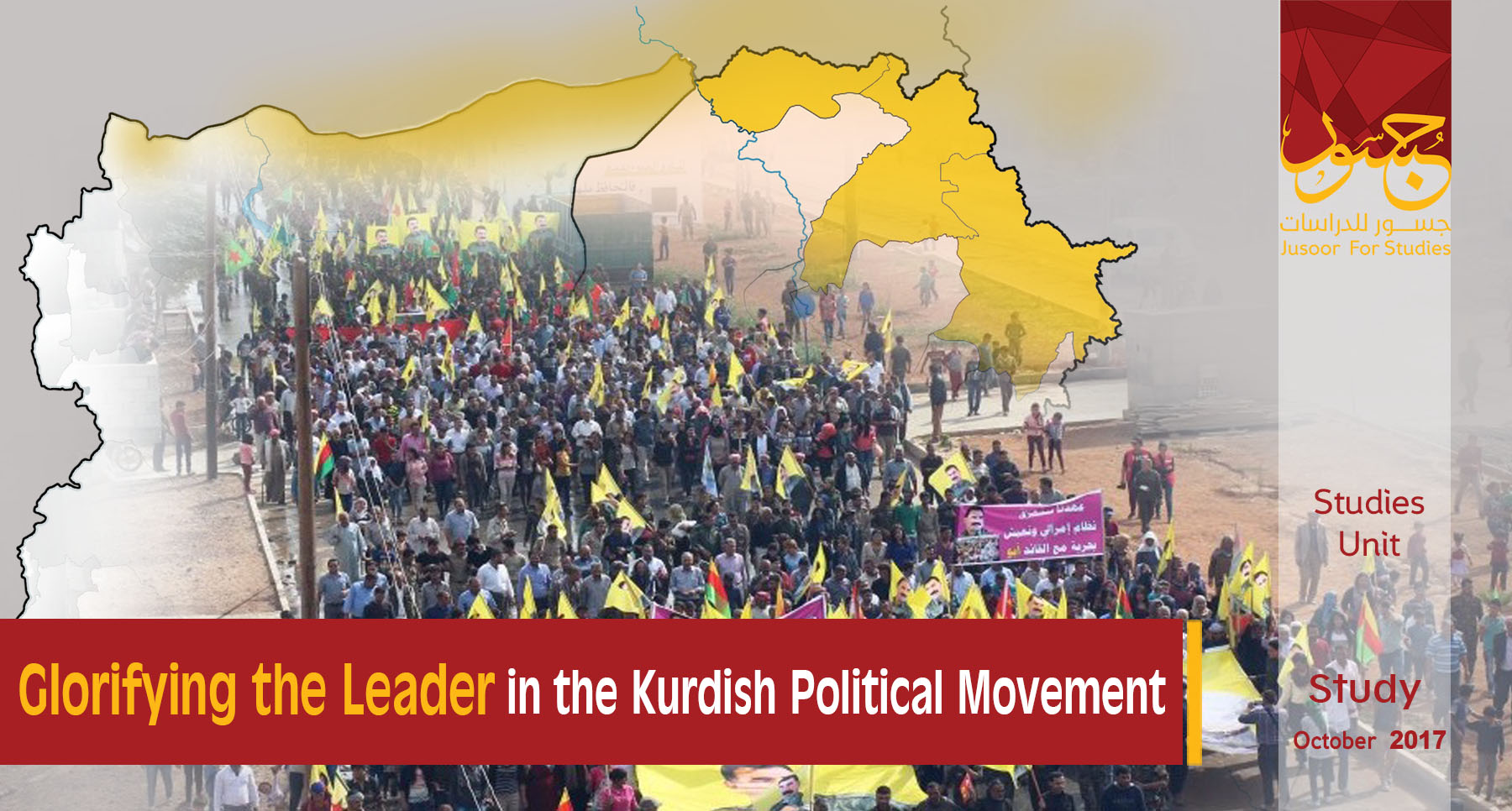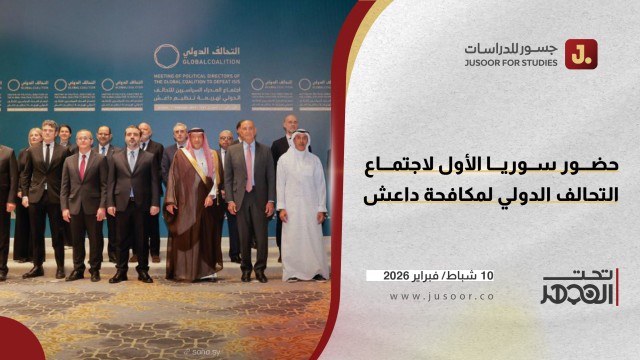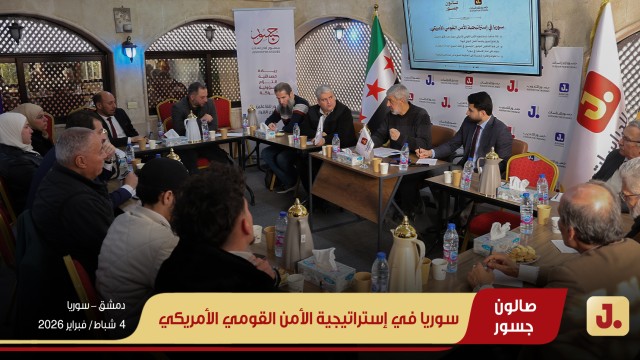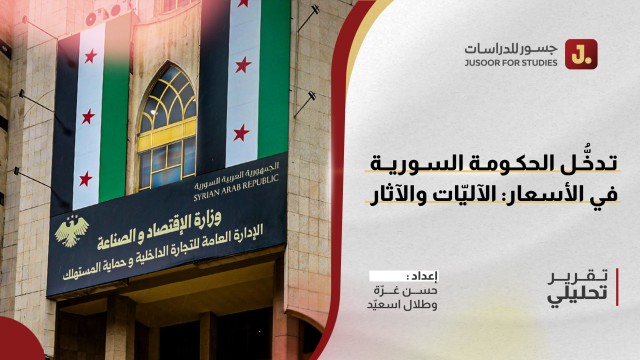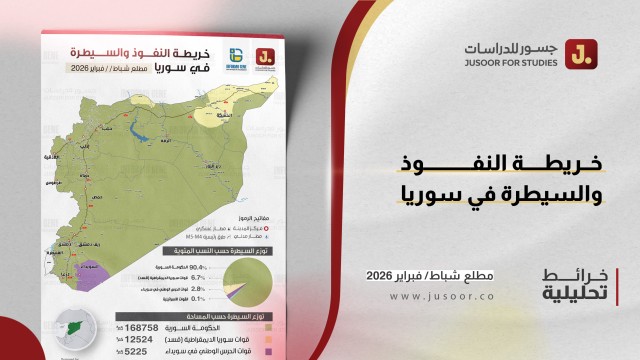Preface
Glorifying or deification the leaders is a tradition that dates back to ancient times and took place in the East generally. This approach was used thousands of years ago as a way for motivating the loyalists and to make them sacrifice anything for the sake of the leader’s satisfaction. Glorifying the leader was an important priority for many totalitarian regimes throughout history.
The communist and socialist experiments in the twentieth century presented extreme models of glorifying the individual. Most of these models had an impact on the southern countries. The most notably are: Lenin (1870 – 1924), Stalin (1878 – 1953) USSR, Mao Zedong (1893 – 1976) China, Fidel Castro (1926-2016) Cuba, Kim Il-sung (1912-1994), and Kim Jong-Il (1941-2011) North Korea.
The Middle East witnessed its own approaches of glorifying the leader and developed them with special techniques, the most significant examples were as follows: Hafez al-Assad (1930-2000), Saddam Hussein (1937-2006), and Muammar Gaddafi (1942-2011). Criticizing those leaders could lead to severe punishments such as torture and death in prisons. Moreover, many quotes from those leaders had turned into a source of wisdom, while pictures of them were spread in public and private institutions in addition to murals and statutes in the streets. Many glorifying titles and characteristics were given to those leaders such as the “Great Leader”, the “Eternal Leader”, and the “Inspiring Leader”….etc. Every single achievement was attributed to the leader in these countries and considered as an endowment or a gift towards the people.
It is important to study and analyze the positions of some movements and revolutionary parties who opposed those regimes, as these movements were affected by the general Middle Eastern approach of glorifying individuals with an important position in the society.
It is interesting to note that glorifying the leader by political movements is mainly associated with armed groups, and very rarely does it appear in non-violent political movements. This indicates that glorifying the leader is linked to the use force to impose it, and to gain respect from those who do not have faith in their leader.
The Kurdish reality is no exception to this phenomena. In some cases those who affiliate with a certain party, gain a title related to the party’s leader. For example, if someone is affiliated with the Kurdistan Workers’ Party (PKK), “Apoci” will be his/her title because the PKK leader’s title is “Apo”. While, if some is affiliated with the Kurdistan Democratic Party (KDP), “Barzani” will be his/her title because the KDP leaders are from Barzani’s family. Conversely, if someone is affiliated to Patriotic Union of Kurdistan (PUK), “Celalî” will be his/her title because PUK leader’s title is Jalal Talabani.
Kurdish Parties and the Concept of Deification
Within Kurdish political and military spheres, there are parties and organizations that have given their leaders the characteristics of glory and perfectness, likening them to a god. Criticizing the leader means opposing Kurdish rights, and being a traitor to the Kurdish people and serving the enemy’s agenda.
Although glorifying the leader is not a characteristic of all Kurdish parties, especially the ones in Syria. It is common among the three main Kurdish parties in Iraq’s Kurdistan, whose leaders have not changed since their parties were established. Pictures documenting the biography of the leaders are hung all over the parties offices, and crossing your legs while sitting is considered to be disrespect to the leader. .
The degree of deification varies between the Kurdish parties in Syria that are influenced by the three main Kurdish parties in Iraq Kurdistan. Each Kurdish party in Syria will thus be analyzed separately.
Democratic Union Party (PYD) which is related to the Kurdistan Workers’ Party (PKK)
The PYD was established on September 20, 2003, as one of PKK branches. The PKK was established by Abdullah Ocalan and some of his colleagues on November 27, 1978. The PKK adopts the Marxist and Communist ideologies, from which its name is derived ‘The Kurdish working party’. Abdullah Ocalan has been the party’s leader for the last 39 years until this day, despite being in prison since February 1999.
The PKK and it Syrian wing the PYD are considered the Kurdish parties who glorify their leaders the most. They consider Ocalan a spiritual leader who has revived the Kurds and the “Philosopher of the Democratic Nation”.
The PKK rejects any kind of criticism towards Ocalan, deeming his decisions correct and flawless, and should implemented without any discussion. Nearly, every single home of Ocalan’s supporters has his picture. Moreover, the 4th of April is not only considered the birthday of Ocalan but also the birthday of all Kurds in the Middle East. In 2017 the PKK founded dozens of parks in the self-governed regions naming them “Apo Park”, “Ocalan Park”….etc. The PKK also celebrates the anniversary of the death of Ocalan’s mother (Üveyş Öcalan). In 2017, many meetings were organized because of this occasion .
The PKK deification’s approach is similar to that of Lenin and Stalin where Ocalan is glorified in person as opposed to his family or tribe, except his mother in addition to Othman Ocalan (his brother) who left the PKK in 2004.
According to Hoshnek Osi (Kurdish writer), the year 1985 witnessed the start of glorifying the leader in the PKK especially, after the third conference of the Kurdish party, as Ocalan got rid of some of his opponents who aimed at leading the PKK .
Kurdistan Democratic Party (KDP)
The party was founded on the 12/8/1946, under the leadership of Mustafa Barzani or “Mullah Barzani”. On January 26, 1953, the name of the party was changed from the “Kurdish Democratic Party” into the “Kurdistan Democratic Party” after the launch of the party’s 5th conference in Kirkuk city. KDP is considered a national and liberal party that has been under the leadership of Masoud Barzani after the death of his father “Mustafa Barzani” in 1979 until this moment.
Mustafa Barzani and his son are deemed the most glorified figures within the party, as Mustafa Barzani is the “Godfather” for Kurds.
KDP uses the term “method” instead of “philosophy” as an indication of Barzani’s approach in leading the Kurdish party.
Similar to the PKK, the KDP celebrates the birthday of Mullah Mustafa on March the 14th and also celebrates the anniversary of his death on the 1st of March . Nearly, every single home of Barzani’s supporters has a picture of the father, the son, or even the family.
Deification of the leader in the KDP is contrary to the PKK’s, whereby Barzani’s tribe gains benefits, which can be seen through the administration of sensitive governmental posts in Erbil by the following personalities: Nechirvan Barzani (Prime Minister), Srour Barzani (the Advisor at the Security Council of Kurdistan Region), and Mansour Barzani (a military commander in the Peshmerga). It is worth mentioning that, the current situation in Erbil is similar to Syria during the presidency of Hafez al-Assad and Iraq during the presidency of Saddam Hussein.
However, the PKK surpasses the KDP with regards to glorifying the leader because of the presence of multiple political movements in Iraq Kurdistan. In contrast the PKK and the PYD are the only dominant parties in the Self-governed regions in Syria, the mountainous regions in Iraq Kurdistan and Turkey. The PKK can thus impose Ocalan character as the only glorified leader in these regions.
The Patriotic Union of Kurdistan (PUK)
The party was founded on June 1, 1975, under the leadership of Jalal Talabani , a former member of the central committee of the KDP. He defected from the KDP in 1975 due to conflicts with its leadership and become a leader of PUK up to the time of his death on October 3, 2017.
The PUK also glorifies its leader and founder (Jalal Talabani) to a lower extent compared with the PDK and PKK because the majority of PUK’s leadership are national academicians. Moreover, the PUK was founded after the KDP, and thus the political arena was not available for the PUK to impose its leader on the others. Likewise the PKK and KDP, PUK’s supporters do not approve of any criticism towards Jalal Talabani.
Talabani is known as a “Cunning Political Character” and “the Kurdish Politician” that history will never witness such a figure.
The PUK’s deification approach take the familial and tribal trend, as Quabad Talabani is expected to be the successor of his father (Jalal Talabani) in leading the party. It is notable that, the power of Barzani’s tribe surpasses the power of Talabani's at the party level.
Glorifying the Leaders and the Leadership within the Kurdish Movements in Syria
Most of the Kurdish parties in Syria are related to the three main Kurdish parties in Iraq Kurdistan except Yekîtî Party led by Ibrahim Biro and the Kurdish Union Party led by Mohideen Sheikh Ali. However, after 2011, Yekiti party became an ally with the KDP and adopted its ideology. While the Kurdish Union Party adopts Ocalan’s ideology in the self-governed areas.
The deification approach of the leader has affected the Kurdish parties in Syria because they were influenced by the Middle Eastern culture and the governing regimes, whereby Kurdistan Democratic Party of Syria (KDP-S) adopts Barzani’s approach at the political level in addition to glorifying Masoud Barazani and his father. It considers any criticism towards these two characters as treachery and abandoning the values of “Kurdism” or “Kurdiyati”.
As for the PYD, the party adopts the same ideology of the PKK, considering Ocalan as a philosopher and savior for Kurds (from oppression) especially, the Kurdish women. Inviolability of Ocalan’s character is deemed as treason and “Erdoganism” ; while imprisonment, torture, beating , or death could be the penalty of such criticism. Ocalan’s pictures in the institutions of self-governed areas’ and PYD’s offices must be respected as well.
On the other hand, the Progressive Democratic Party led by Abdul Hameed Haj Darwish has an affiliation to the PUK. Consequently, many pictures of Jalal Talabani can be found in the Homes of KDP-S’ loyalists, who consider Talabani as the first Kurdish political character. Furthermore, the Progressive Democratic Party has a lesser degree of deification towards the leader due to its affiliation to the PUK.
Concerning the Kurdish movements in Syria, Abdul Hameed Haj Darwish is deemed the most significant character who has been glorified since 1966 . Darwish has assumed the same position as the Secretary-General of the party despite his illness, whilst his loyalists see him as the “Godfather” of the party, and they think that there are similar characteristics between Jalal Talabani and Abdul Hameed Haj Darwish with regards to political cunningness and savvy. Criticizing Darwish is unacceptable by his supporters, because he is the founder of the party and an experienced politician who inspires them. He has been the party’s leader for 51 years despite the presence of divisions within the party, in addition to demands to change the Secretary-General of the Progressive Democratic Party.
Abdul Hameed Haj Darwish is the only person that has been glorified among the other Kurdish characters in Syria because the main Kurdish parties have an affiliation to one of the major three Kurdish parties in Iraq Kurdistan, and they glorify the leaders of these parties such as Ocalan, Barzani, or Talabani.
The situation of holding on to the leadership of the party until the death of the leader exists in the Kurdish movements in Syria despite the lack of a glorified Kurdish character such as Ocalan. Yekiti Party is the only Kurdish party that changes its leader every four years.
The above-mentioned situation has caused the division of many Kurdish parties in Syria such as the Progressive Democratic Party who has split twice because of conflicts with regards to the change of its leader. Aziz Dawood, the leader of Kurdish Democratic Equality Party had remained in the party’s leadership until his death on the 11/4/2013, as the party had split from the Progressive Democratic Party in 1992. Furthermore, Nasr Al-Deen Ibrahim has been the leader of the Kurdish Democratic Party in Syria (“The Party” which split from KDP-S later) between 1998 and 2017. Tahir Sfook remains the leader of the Kurdish Democratic National Party in Syria (founded in 1998) and Mohammed Musa remains the leader of the Kurdish Left Party in Syria (founded in 1996).
It is notable that the glorification of the leader in Kurdish movements is different to how Kurdish armed groups glorify their leader. Kurdish movements consider the leader as the most suitable character for leading the party and should remain in the lead up to the time of his/her death, while those who oppose his leadership can defect from the party and establish a party of their own. It is worth mentioning that the newly established parties are often led by the defected character up to the time of his/her death as well.
Some Kurdish parties have established new positions to satisfy the leaders. For example, the Yekiti Party in Syria was established due to the competition between the Kurdish Labor Party and the Kurdish Democratic Party in 1993, whereby two positions were established by Yekiti Party in order to satisfy the two integrated parties, as follows: “Leader” which was assumed by Ismail Omar, who died in 2010 and the “Secretary-General” which was assumed by Mohidden Sheikh Ali till this moment.
The other Kurdish parties name themselves after their leaders or secretary generals such as the “Union Party” due to the presence of “Sheikh Ali wing” and “Kameran wing”, in addition to “Hameed Party” because the party is led by Abdul Hameed Haj Darwish.
The Holiness of the Political Leader from the Social Views
The political situation has affected the social situation, whereby the Kurdish society is split on the bases of tribal and political subordination towards a certain political leader . Many societal and political differences have emerged due to the different loyalties with regards to the political leaders . These differences have led to marriage refusals between families, in addition to conflicts due to criticizing the leader by the opposing side.
The societal division between the different sides (Barzani or Apocis or Celalî) is not related to political differences, while the main reason is the deification and excessive admiration from the Kurdish society towards those leaders. The holiness and admiration are the fruit of systematic media campaigns that play a vital role in making the grass-root movements glorify those leaders.
Despite the fact that, the approach of glorifying the leader vanished in the 1990s especially, after the detention of Ocalan, the alleviation of conflicts between the Kurdish parties, and focusing on the Kurdish affair in Syria which led to the emergence of strong Kurdish parties such as Yekiti Party and KDP-S. These parties have different approaches concerning the deification of the leader. The Syrian Revolution made the PYD reemerge as a strong party that has political and military forces on the ground, and has imposed its approach of glorifying the leader on the Kurdish society in Syria. The same scenario took place with Barzani’s supporters who use the term “Barzani’s Approach” which is similar to the term “Ocalan Philosophy” thus, the Syrian Kurds are still captivated by the approach and philosophy of those leaders, whilst Kurds do not have any clue about the meaning of these terms.
The Political Exploitation through the Holiness of the leader
Most parties led by a glorified leader try to prove the worthiness of the leader’s deification because they consider the loyalty of grass-roots (especially the Middle Eastern people) towards the leader as more important than the party’s ideology and principles. Consequently, many metaphysical and mythical characteristics are attributed to these leaders. Generally, the speech should be focused on the leader rather than the party’s comrades or even stressing on the comrades’ loyalty towards their leader’s wisdom and guidance.
The Motivations of Glorifying the Leader by the People
There are many reasons behind the spread of the deification approach within the Kurdish political movements, in addition to consolidating this approach through decades of the Kurdish struggle, as follows:
• A personal desire of singling out governance in addition to the leader’s will of being glorified by the comrades which helps in removing the leader’s opponents from taking his/her position.
• The Kurds’ acceptance as Eastern people of such ideology due to the impact of the eastern culture and the governing regimes on Kurds.
• Some Kurdish leaders took advantage of war circumstances between their parties and governments, spreading the ideas of being the only choice for leading the party and any change related to the leadership may cause the breakdown of the party and the Kurdish struggle would fail.
• The conflict between the Kurdish parties had an impact on the Kurds, as each party defends its leader’s right of leading the Kurdish society.
Methods and Mechanisms of Promoting the Deification of the Leader
The main Kurdish parties seek the deification of the leader through turning this approach into a practical situation among people and actors in public affairs. The most notable approaches are as follows:
Media
Each party focuses on statements, quotes, approaches, philosophy, and abilities related to the leader in addition to publishing pictures and videos that show social, political, and military aspects of the leader’s life, while TV programs and journal publications are canceled on occasions such as the birthday or death of the leader.
Spreading Pictures and Statutes
The spread of leaders’ pictures is the main method that the party uses for promoting the deification approach, whereby every single office in the party has a picture of the leader. Moreover, the pictures are hung in the streets, the entrance of the city, and official institutions.
Each institution in the self-governed areas has a picture of Ocalan even at a funeral of an important person or any meeting between the reconciliation committees. The same situation can be seen in the KDP, as there is a huge picture of Mustafa Barzani in Iraq Kurdistan’s Council of Ministers .
Pictures of the leader can also be seen in the demonstrations and deemed more significant than the demonstration’s slogans themselves.
The PYD has created a new title for their leader “Leader of the Nations” as an indication of leading the whole ethnic components.
Slogans, Songs, and Poems
Slogans of glorifying the leader are being used in demonstrations and public gatherings in addition to mentioning the quotes of the leader that are considered more significant than the slogans related to the demonstrations or the public gatherings themselves.
Each leader has his own poets who compose poems that are sung by musical groups. These poems and songs aim at promoting the party’s policies.
The Applauding Entourage
There is an applauding entourage that believes in the party ideologies and the extraordinary abilities of its leader, in addition to the presence of another applauding entourage (claque) that gains financial benefits and privileges in order to promote the party’s achievements. The latter situation can be identified in the parties with great economic resources.
The Educated Personality that Plays Role in the Deification Approach
Many active Kurdish parties have created or depended on educated characters for playing a role in the deification approach. The educated character’s task is to present theories about the leader’s deification, identifying the leader’s wisdom and method. Furthermore, some Kurdish parties publish (for free) books and studies prepared by the educated characters or even teach these books as part of school curriculums.
Summaries
• Through the deification of the leader, the Kurdish parties have spread ideas that contradict their own objectives, a scenario similar to their rival parties such as the Ba’ath Party.
• There are different degrees of deification of the leader within Kurdish parties. The PKK glorifies its leader the most followed by the KDP, the PUK, and the rest of Kurdish parties in Syria who have an affiliation to the KDP or PUK.
• There is a systematic policy by the leadership and parties with regards to spreading the ideas of deification through using the party’s budget, media, and cadres.
• The militarized Kurdish parties impose the deification of the leader on Kurds in a way contrary to the political parties who grant the leader an eternal leadership of the party without the presence of any glorifying or deification for the leader.
• Leaders and parties have followed many approaches to consolidate the principles of glorifying the leader through using the party’s financial and media resources.
• Many Kurdish parties in Syria have split because many leaders hold on to the leadership of the party. This situation has spread within the Kurdish parties in Syria.
• The Kurdish political situation is considered as a new paradigm of the tribal aspect, diverting the loyalty towards some leading personalities or the leader of the party rather than the party’s objectives, while a group of applauding entourage (claque) has appeared in some parties in order to glorify the leader’s achievements in return for political and financial gains.
• Glorifying the leader has led to attributing any failure within the party to foreign agendas because the supreme leadership is impeccable and glorified.
• It is unexpected that the Kurdish political movement would abandon the deification approach of the leader in the near future especially, the major Kurdish parties, whereby the succession of the leadership by the leader’s son has already taken place, while other parties refuse to criticize the leader’s character for any reason.
• It is unlikely that the Kurdish political parties in Syria would risk canceling the strong bond between the leader and the leadership in the near future because of their affiliation to the three major Kurdish parties who refuse to break such a bond.
Margins:
1- All services in Syria were considered as achievements of the “Corrective Movement”. Hafez al-Assad used the name “the Correction Movement” in order to describe his coup against his comrades in 1970.
2- This situation has been noticed at the beginning of the self-governance in Syria, as it is forbidden crossing your legs while sitting because it is considered as a disrespect towards Ocalan’s picture (the writer has witnessed such situation by himself).
3- The official website of PYD
4- The official website of PKK
5- The first emblem of the party was a red background, a hammer, an anvil, and a yellow star in the middle.
6- Öcalan was born in a village in Şanlıurfa Province in eastern Turkey. He studied law in Istanbul University but transferred after the first year to Ankara University to study political science. In 1978, Ocalan founded PKK. He left Turkey in 1980 and headed to Syria. In 1984, Ocalan declared the armed struggle against the Turkish State for the sake of establishing the Kurdish State and left Syria in 1998 due to Turkish pressure on the Syrian Government. He was captured in Kenya on 15 February 1999.
7- Hawar Agency, a commemoration function of Üveyş Öcalan in Al-Malikiyah and Al-Muabbada, 11/4/2017
See also: Hawar Agency, Ocalan launched the revolution of liberating the women after analyzing the personality of his mother, 11/4/2017
8- Al Hayat Journal, PKK and its tricky narratives with regards to the pictures showing Ocalan as “ascetic” and “eternal leader”, 23/2/2017
9- KDP, an overview about KDP
10- Masoud Al Barzani was born on 16 August 1946 in Mahabad in Iran. This date is similar to the date of founding KDP by Mustafa Barzani. Masoud Barzani assumed the position of leading KDP in 1979 and he has 8 children who are officials in Iraq Kurdistan. On the 12/6/2005, Masoud Barzani became the first president of Iraq Kurdistan and still.
11- Vedeng, on the occasion of Mustafa Barzani’s birthday: the National Council in Qamishli hosts the head of the local councils, 15/3/2017
See also: Rojava news, media report about festivals in Afrin district that are administrated by PDK-S, 15/3/2017
Altaakhipress, in the occasion of the birthday of the eternal Kurdish nation’s leader “Mustafa Barzani”, 14/3/2017
12- There are many Kurdish parties in Iraq Kurdistan that seek attaining seats in the parliament, as the strongest parties are ordered as follows: KDP, PUK, Gorran Movement, Kurdistan Islamic Union thus, it is hard to impose the “Barzani’s Approach” or “Barzani’s Deification” on all political parties.
13- Jalal Talabani was born on the 12/11/1933 in Kelkan village. He graduated from Law School in Baghdad University. He joined KDP and defected after a period of time. He founded PUK in 1975 and became the president of Iraq in 2006 and reelected for the same position in 2010. He died on the 3/10/2017.
14- Kurdiyati or Kurdism: means the faithfulness and affiliation towards the Kurdish nationalism.
15- Erdoganism: a term used by supporters of PYD against any opponents and means that the person is an agent for Erdogan and the Turkish Government.
16- It is thought that PYD and Movement for Democratic Society use the youth from Rojava Youth Union in order to conduct illegal actions such as beating, threatening, and vandalism that institutions in Self-Governed areas cannot conduct. These people are normally masked when they conduct such actions, while their deeds are justified as reckless acts.
17- Abdul Hameed Haj Darwish was born in 1936 in Al Qarmanah village and he was the first founder of a Kurdish party in 1957. He was elected as Secretary General after the first split. He changed the name of the Kurdish party to the “Progressive Democratic Party” in Syria. He was elected as a member of the Assembly Council in Syria between 1994 and 1998. He was elected as head associate for Damascus Declaration. He is still the leader of the Progressive Democratic Party in Syria.
18- Highlights on the Kurdish Movement in Syria, Abdul Hameed Darwish, 2000, Page 102.
19- Aziz Dawood defected in 1992 and founded the Kurdish Democratic Equality Party. In 2011, Faysal Yousef defected and established the Kurdish Reform Movement in Syria.
20- The usage of term “Jalali” was considerably decreased after 2011 because PUK dissociated itself from the Kurdish political conflict in Syria despite its political and media support towards PYD. The term “Jalali” was used considerably after the political conflict that turned into armed one between KDP and PUK in 1994. These conflicts had caused the spread of other terms such as “Barzanis” and “Apoci”. However, the term “Jalali” was scarcely used after the agreement of 1998, while the usage of terms like “Barzanis” and “Apoci” had decreased after the detention of Abdallah Ocalan in 1999. The Kurdish conflict reappeared after 2011 in Syria.
21- Some cases of refusing the marriage due to political disputes have been noticed especially, between the supporters of PKK and KDP, as the accusations of treason among those supporters have a negative impact on the social situation within the Kurdish setting.
22- You can find a picture of Kurdistan Regional Government (KRG) in addition to the ministries and departments
23- Thousands of women in Aleppo call for the liberation of the women, YouTube, Ajansa Hawar ANHA, 5/3/2017
24- See: Abdallah Ocalan, YouTube
Songs that glorify Masoud Barzani, YouTube
25- The emergence of the “claquer” took place in ancient Greece, as his/her duty was to motivate the audience in order to applaud at the end of a play.

